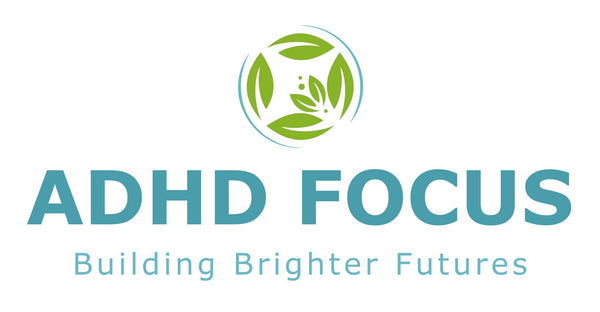
What is ADHD Burnout in Children?
Share
As a clinical psychologist and CEO of Feelgood Health, I've had the privilege of working closely with families navigating the challenges of raising children with Attention-Deficit/Hyperactivity Disorder (ADHD). One concern that often arises is ADHD burnout in children—a state of mental, emotional, and physical exhaustion resulting from chronic stress and overstimulation. Understanding and addressing this phenomenon is crucial for the well-being of both children and their families.
Recognizing ADHD Burnout in Children
Children with ADHD may experience burnout differently than adults. Key signs include:
- Irritability and Mood Swings: Increased frustration over minor issues.
- Declining Academic Performance: Difficulty concentrating and completing assignments.
- Social Withdrawal: Avoidance of friends and previously enjoyed activities.
- Oppositional Behaviors: Resistance to authority and frequent conflicts.
- Physical Complaints: Frequent headaches or stomachaches without a clear medical cause.
These symptoms often reflect a child's struggle to communicate overwhelming exhaustion, but are often misinterpreted and labeled 'naughty' and uncooperative. Children may regularly be punished for this behaviour, which can result in worsening of symptoms and frustration all round. Knowing how to manage ADHD burnout correctly and proactively is therefore crucial in order to help your child and prevent conflict and worsening of symptoms
So what can parents do to prevent and manage ADHD Burnout in their children, in a way that improves the situation, rather than making it worse?
Managing and Preventing ADHD Burnout: A Holistic Approach
At Feelgood Health, we advocate for a comprehensive strategy that addresses the mind, body, and environment for best results:
- Structured Routines: Consistent daily schedules provide predictability, reducing anxiety and helping children manage expectations. This means regular bedtime, morning and homework routines.
- Balanced Nutrition: A diet rich in whole grains, lean proteins, fruits, and vegetables supports brain health. Limiting sugar and processed foods can stabilize energy levels.
- Physical Activity: Regular exercise, such as yoga or tai chi, can improve focus and reduce hyperactivity. Even just getting outside every day and kicking a ball around or playing catch will help to regulate energy levels.
- Mindfulness Practices: Techniques like meditation and deep breathing enhance self-awareness and emotional regulation. Teach your child to identify stress, count to 5 and take a deep breath before reacting
- Adequate Sleep: Establishing a calming bedtime routine ensures restorative rest, crucial for mood and attention. This is more important than many people realise!
- Nature Exposure: Spending time outdoors in green settings has been shown to reduce ADHD symptoms.
- Open Communication: Encouraging children to express their feelings fosters trust and helps identify stressors early.
- Prevention is better than cure. Learn how to recognise signs that your child is feeling overwhelmed and stressed and intervene as early as possible to calm things down before they become out of hand.
- Chat with the teacher to explain the concept of ADHD burnout and how to manage and prevent it. Even small interventions like desk placement in the classroom can make all the difference.
- Professional Support: Consulting with healthcare providers for therapies or interventions tailored to the child's needs is essential.
Natural Remedies to Support ADHD Management
In addition to lifestyle strategies, certain natural remedies can play a supportive role in managing ADHD symptoms:
- BrightSpark: A homeopathic remedy designed to relieve hyperactivity and improve attention.
- MindSoothe Jr: A herbal supplement containing St. John's Wort and Passionflower, known for their calming properties, helping to address anxiety, irritability, and restlessness. MindSoothe Jr is especially useful for children with mood swings, anger issues and difficulties in remaining calm under stress.
- Focus & Calm: A herbal formula that supports cognitive function and mental calmness, containing ingredients like Ginkgo Biloba, Skullcap and Holy Basil to enhance focus, memory, and concentration.
These remedies are formulated to support concentration, focus and calmness without the side effects of prescription medicines. As they are made from natural ingredients, they offer a gentle yet effective alternative to conventional ADHD medications.
By integrating these holistic strategies and natural remedies, we can widen our understanding and support our children in managing ADHD more effectively, promoting their overall well-being and preventing burnout.
